Tender and flavourful, slow-cooked short rib ragù is perfect for serving with hearty pasta or polenta. Total comfort food and so delicious. While the recipe takes about three hours from start to finish, most of that isn’t active time, and it’s well worth it.
For some more flavour-packed dinner ideas, try my beer braised short ribs, Beef Bolognese, pasta alla zozzona, pasta alla Genovese and marinated za’atar chicken thighs.

Table of Contents
Why You’ll Love This Recipe
This is the ultimate hearty comfort food, with strong flavours from the ribs, red wine, and herbs. A long, slow cook makes for a melt-in-your-mouth texture that’s absolutely dreamy with a good pasta.
- Short active time: the long cooking time does most of the work, with only about 20 minutes of active cooking needed.
- It makes great leftovers: the sauce will keep for a few days in the fridge and can be served in so many ways, so it’s worth making a big batch. In fact, I prefer it the next day, after the flavors have had a chance to mingle even longer.
- It’s a full meal as is: no need for an additional side to get your vegetables in (if you don’t want to), because the ragù uses two full cups of finely diced vegetables.
Ingredients
Easy to find ingredients make this a simple recipe for home cooks. You can ask your local butcher, or the person working at the meat counter, to cut the short ribs to save you some time later.

- Short ribs: my preference is to use deboned short ribs, cut English Style in cubes for convenience. Bone-in short ribs also work and will give the ragù more flavor. For a more affordable alternative, stewing beef cubes can be used. Chuck roast can also be used (or try my Braised Chuck Roast recipe).
- Wine: a dry red wine is best, not a sweet or fruity type.
- Herb bundle: this is rosemary, thyme, and parsley. You’ll use the parsley stems and top with the leaves, so separate them and set the leaves aside for garnishing later.
- Parmigiano Reggiano: this is proper parmesan cheese. Try to get a fresh piece and grate it yourself rather than the dried granules that come in a container.
- Tomatoes: if they’re in season and you have a glut of tomatoes, fresh can be subbed in an equal amount to canned.
See the recipe card for full information on ingredients and quantities.
How to Make this Ragù
While the total cooking time here is about three hours, you’ll be working on it for less than half an hour. While the sauce simmers, you can kick back and relax or work on something else.

1. Sear the ribs: in a hot braiser or Dutch oven, sear the ribs on all sides, in batches if necessary. Transfer to a plate (Image 1).
2. Cook the vegetables: add the onion, celery, carrot, and garlic to the same pot and sauté for a few minutes (Image 2).
3. Add tomato paste: stir in the tomato paste, some salt, and pepper. It’s important to cook the tomato paste for best flavor (Image 3).
4. Deglaze: use the red wine to deglaze the pot, making sure to scrape the bottom (Image 4).

5. Add the ribs: transfer the ribs back to the pot along with the tomatoes (Image 5).
6. Simmer: add the herbs, then cover and simmer for about 2 1/2 hours (Image 6).
7. Shred: remove the herbs, then shred the ribs, removing the bones first if necessary (Image 7).
8. Serve: season to taste, then serve with parmesan and some parsley (Image 8).
What to Serve with Ragù
A ragù can be made with just about any kind of meat and is usually served with a thicker type of pasta, but you could use it to fill ravioli, layer into lasagna, serve with roasted vegetables like Roasted Cauliflower or Batata Harra (Spicy Potatoes) or vermicelli rice. You could even use it for topping homemade hummus!
- Traditional: thicker, heartier cuts and shapes like pappardelle, tagliatelle, orecchiette, rigatoni and cavatelli are best with ragù. In a pinch, you can use spaghetti or linguine.
- Adventurous: serve it over a creamy polenta, or even mashed potatoes. Use it to replace the ground beef layer for a flavourful lasagna or other baked pasta, or try it with hummus and Taboon (flatbread).
- Enjoy it with a side salad, like my Burrata Caprese.

Expert Tips
Anyone can make this short rib ragù at home, even beginners. If you follow the recipe carefully and read through all the expert information provided in the post, the sauce will be flawless the first time and every time.
- Make it in the oven: the cooking time is the same, but use an oven-safe pot and cook in a 325°F oven.
- Don’t crowd the ribs: if there are too many ribs in the pan when searing (they shouldn’t touch) then they’ll steam rather than sear. You want the Maillard reaction and the meat must brown for that distinctive flavour.
- Use a mise en place: it’s less stress while cooking if the vegetables in particular are diced ahead of time, as it can be a bit of a rush to get them ready while searing the ribs. Get around it by doing the prep in advance rather than multi-tasking.
Recipe FAQs
There are a number of ragù recipes, but the common theme is the presence of some kind of meat, usually beef or pork, and that the sauce is usually used for pasta.
Bolognese is simply a meat sauce specific to the Bologna region of Italy, while ragù refers to this type of tomato and meat sauce more generally.
It’s difficult to overcook, unless you’re using a type of meat that doesn’t contain much fat – think a lean rabbit or veal. It’s unlikely that this short rib ragù would be overcooked.
The sauce can be made a day in advance and gently reheated before serving. Be sure to cool fully before refrigerating, and keep in the pot for the easiest reheating and serving.
Like most cooked tomato dishes, it can taste better the day after cooking, but since this is slow-cooked, it’s not a marked difference. This stores well so you can keep some for later.
Storage: leftover sauce can be stored in a sealed container in the refrigerator for up to four days, but is best stored separately from pasta.
Freezing: cool fully, then transfer to an airtight container. Freeze for up to three months, thawing overnight in the refrigerator before reheating as usual.
More Delicious Mains
If you make this Short Rib Ragù or any other main dishes on Urban Farm and Kitchen, please take a moment to rate the recipe and leave a comment below. It’s such a help to others who want to try the recipe.
For more Urban Farm and Kitchen, follow along on Instagram, Facebook, and Pinterest, visit the Urban Farm Shop, or subscribe for new posts via email.
Short Rib Ragu
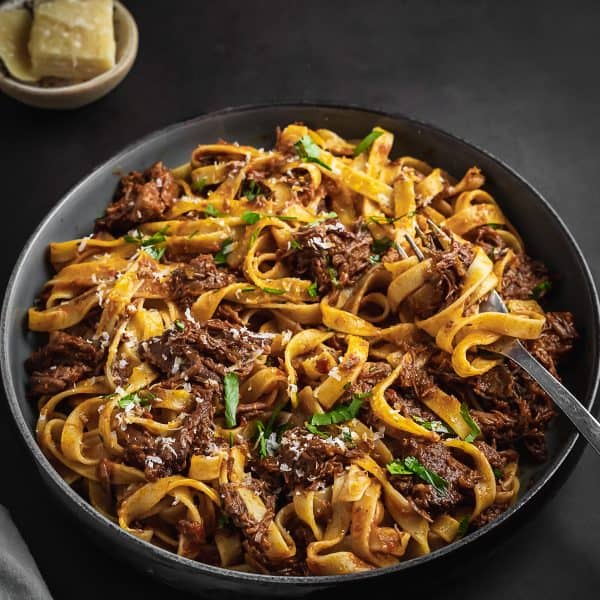
Ingredients
- 2 lbs Beef short ribs – De-boned, cut into 2" (5cm) cubes
- 2 tbsp Light olive oil – or use vegetable or avocado oil
- Kosher salt
- 1 cup White onion – Finely diced
- ½ cup Celery – Finely diced
- ½ cup Carrot – Finely diced
- 4 Garlic cloves – Finely minced
- 2 tbsp Tomato paste
- 1 cup Red wine
- 1 cup Broth – Beef or chicken
- 1 ¾ cup Crushed tomatoes – 14oz can
- Herb Bundle – Rosemary, thyme, parsley stems
- 2 Bay leaves
- 2 tbsp Sherry or red wine vinegar
- Kosher salt and fresh cracked pepper to taste
- 1 lbs Pasta – Tagliatelle or pappardelle
- Chopped parsley and grated parmigiano reggiano for garnish
Instructions
- Season short ribs with kosher salt on all sides.
- In a large braiser or Dutch oven on medium-high heat, add 2 tablespoons of light olive oil. You can also use vegetable or avocado oil. Add the short ribs and sear on all sides. Do not crowd your pot. Do this in batches if needed. Transfer seared short ribs to a plate. If the ribs released a lot of grease, remove some from the pot, leaving behind no more than 2 tablespoons of grease.
- To the same pot, add onion, celery, carrot and garlic. Saute on medium high for 3-4 minutes, until onion softens.
- Add tomato paste, 1 teaspoon of kosher salt and 1/2 tsp of fresh cracked pepper. Saute for another 2-3 minutes.
- Deglaze the pot with the red wine, making sure to scrape all the browned bits off the bottom of the pot.
- Return seared short ribs back to the pot and add broth and crushed tomatoes.
- Add herb bundle and bay leaves. Bring the pot to a low simmer, cover but leave the lid slightly ajar so that the steam can escape and the sauce can reduce. Cook for 2 to 2 1/2 hours. Check on the pot every now and then and if you notice it drying out too much, add a splash of broth or water. You can also reduce the heat further is possible.
- The ribs are ready when they are fork tender and fall apart easily. If by 2 1/2 hours the ribs are still not tender, continue simmering for another 30 minutes.
- Remove bay leaves and herb bundle and discard. If using boneless ribs, shred them right in the pot using a pair of tongs or two forks. If using bone-in ribs, carefully pull the bones and then shred the meat. Note: The cartilage surrounding the bone isn't appetizing to everyone so you may choose to remove and discard that as well.
- Taste and adjust the seasoning. Add vinegar. If the sauce feels too runny for your taste, continue to simmer for another 15-30 minutes.
- Serve the ragu with your favorite pasta (cook per package instructions) and garnish with grated Parmigiano Reggiano and chopped parsley.
Notes
Nutrition
Nutrition information is automatically calculated, so should only be used as an approximation.
 Like this recipe? Rate & comment below!
Like this recipe? Rate & comment below!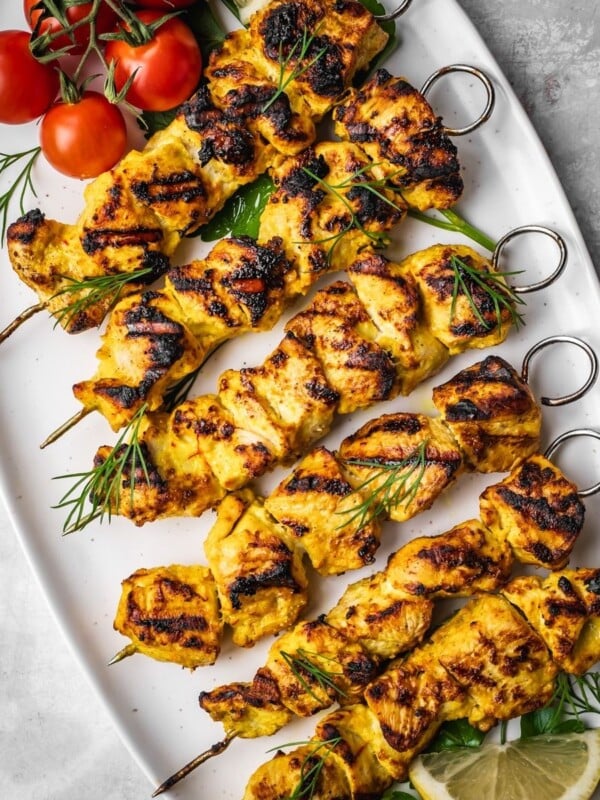
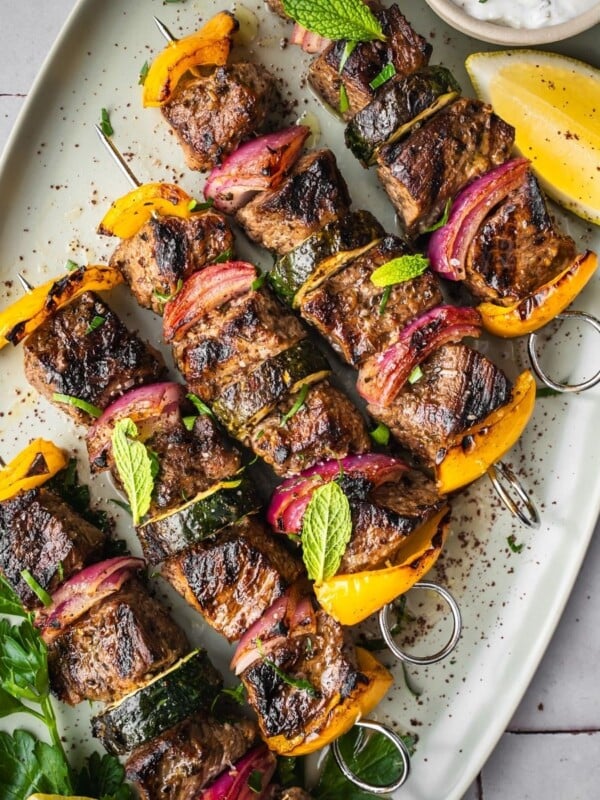


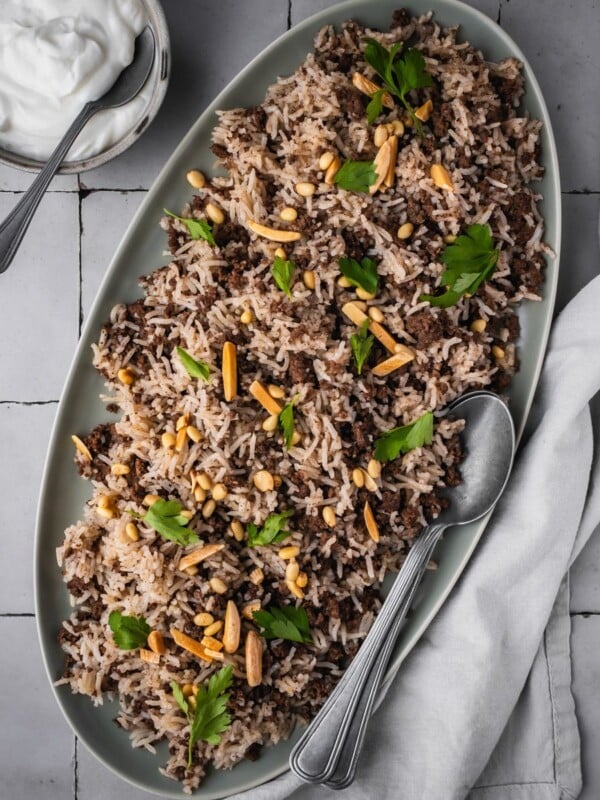
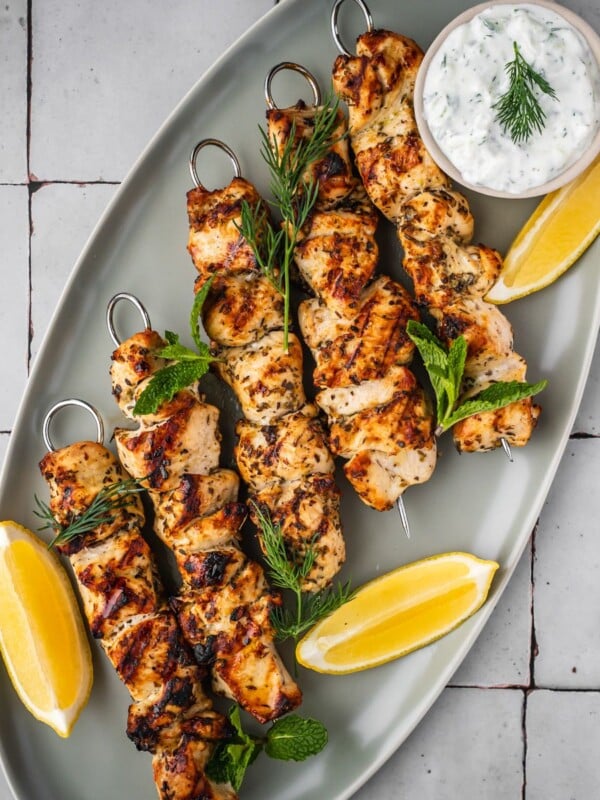
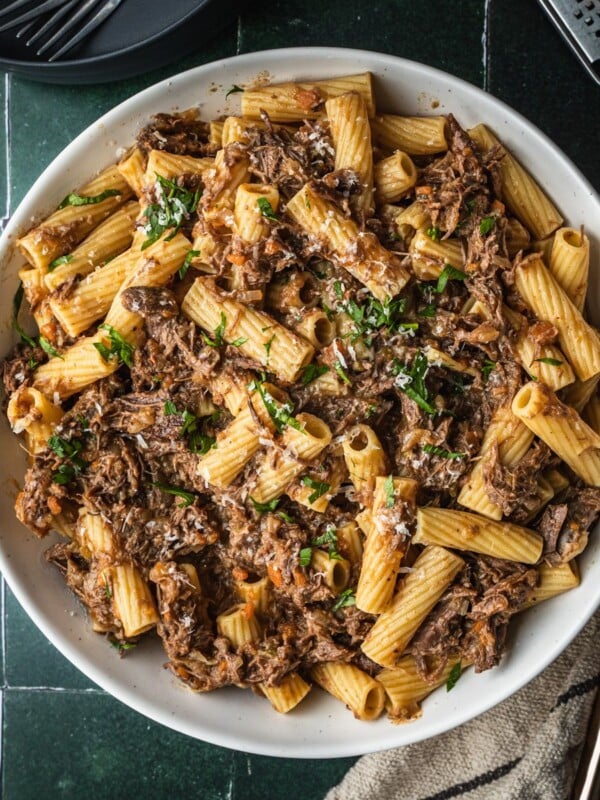
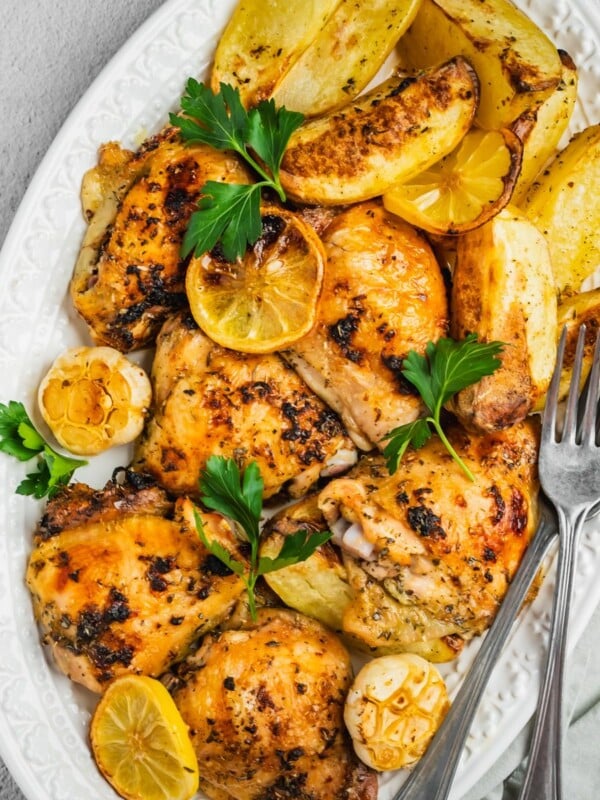








Excellent easy to follow recipe. Made a couple of subs. Used Beefy Onion Soup mix instead of beef broth. Added a little Worchestire sauce. Used white wine vinegar instead of red. Put sauce over fresh pasta fettucini nests. Dutch Oven is the way to go.
I made this dish the day after I received your book. It was delicious! My family loved it and request it frequently.
I’m glad your family enjoys it.